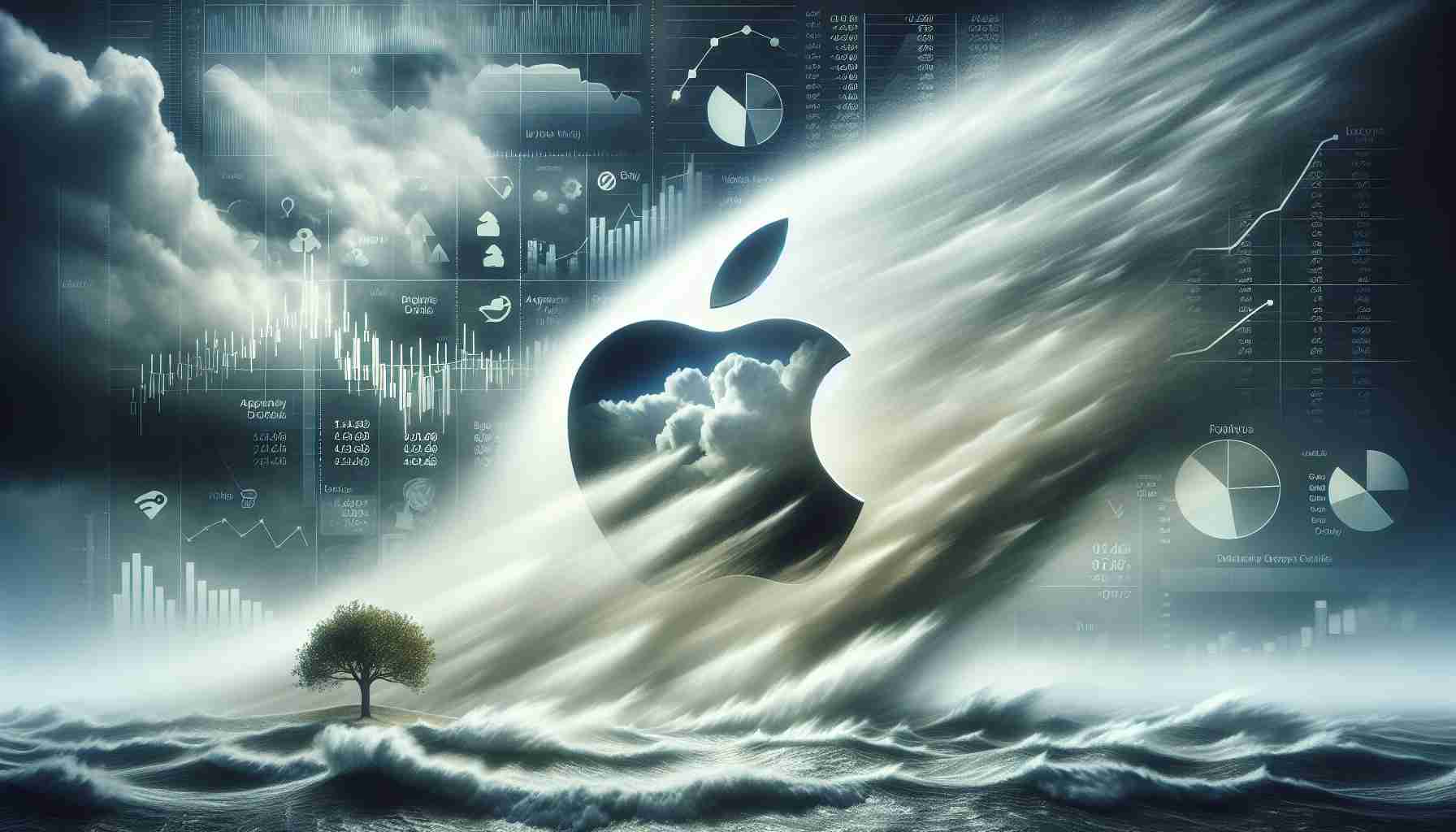Apple, a paragon of innovation, faces hurdles
Renowned for its trailblazing products like the iPhone and iPad, Apple has demonstrated an exceptional ability to capture consumer’s hearts. Yet, it appears that the tide may be turning for this iconic tech company. Over the past year and a half, Apple’s financial landscape has been marred by declining sales, particularly true for their flagship iPhones.
Economic climate dampens consumer spending
Apple’s difficulties have been compounded by an economic environment rife with inflationary pressures and heightened interest rates. Despite a recent dip in inflation to 3.4%, the rate exceeds the decade-long average, as well as the Federal Reserve’s 2% goal. Such economic conditions have weakened consumer spending, apparent in the reluctance to invest in new Apple devices.
Chinese market contraction and innovation concerns
A significant 8% drop in sales was reported in China—an essential market for Apple. Accompanying this downturn, demand for other hardware like iPads and the Apple Watch also experienced a slump. Adding to investor unease is Apple’s conspicuous silence on its strategy for artificial intelligence, a domain where its competitors have already established a presence.
Given these factors, there’s a growing sentiment among market watchers that Apple may not currently embody an ideal growth investment. This cautious stance is underscored by the company’s recent stock performance which does not inspire confidence for immediate recovery.
Key Questions and Answers:
1. What are the key economic factors affecting Apple’s financial performance?
Inflationary pressures and higher interest rates are key economic factors putting a strain on consumer spending power, which in turn impacts sales of premium-priced products like those offered by Apple.
2. How significant is the Chinese market to Apple?
China represents a crucial market for Apple, being one of the largest markets for smartphones and consumer electronics globally. A sales drop of 8% there is a substantial setback for the company.
3. What are the concerns about Apple’s approach to innovation?
Investors are worried about Apple’s lack of evident strategy in artificial intelligence, as competitors are advancing in this field. AI is increasingly seen as a critical component for the next generation of tech products.
Key Challenges or Controversies:
– Market Saturation: With many consumers already owning smartphones and other devices, Apple faces the challenge of stimulating demand in a saturated market.
– Dependency on Flagship Products: Over-reliance on iPhone sales leaves Apple vulnerable to declines in the smartphone market or consumer spending shifts.
– Competitive Pressure: Rivals like Samsung, Google, and Huawei are aggressively innovating, particularly in AI and low-cost smartphones.
Advantages and Disadvantages:
Advantages:
– Apple’s brand loyalty and ecosystem lock-in provide a consistent consumer base and recurring revenue through services.
– The company has a strong balance sheet with significant cash reserves, enabling resilience through economic downturns.
Disadvantages:
– Premium pricing strategy becomes a handicap in an economically challenging environment, making products less accessible.
– Limited transparency on future strategy, especially on trending technologies like AI, breeds investor skepticism.
For official and the latest information, see Apple’s corporate and investor relations pages:
– Apple’s Main Site
– Apple Investor Relations
Please note that the answers provided are based on information as of the last knowledge update and should be taken in context of the time-sensitive nature of the data.
The source of the article is from the blog maestropasta.cz
